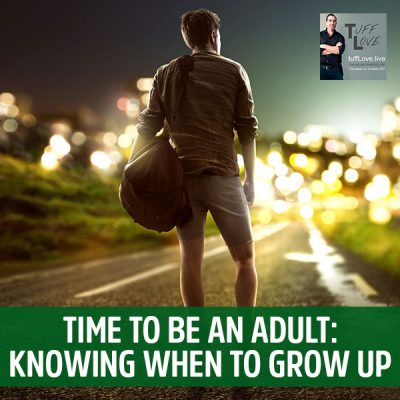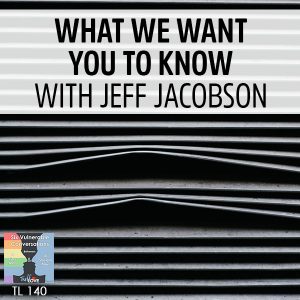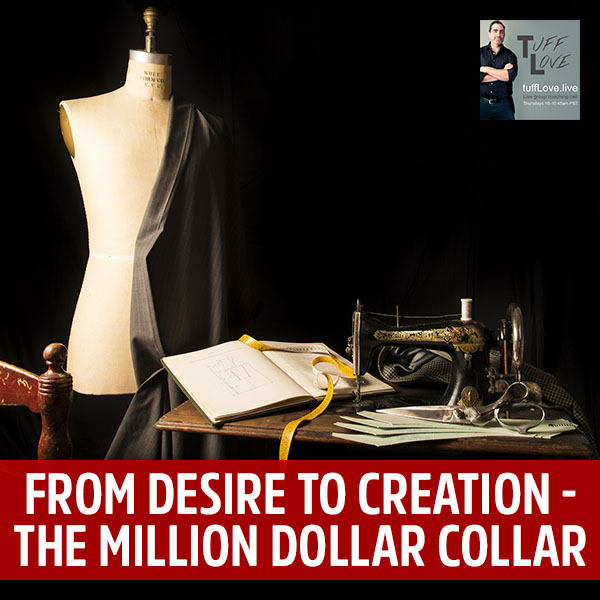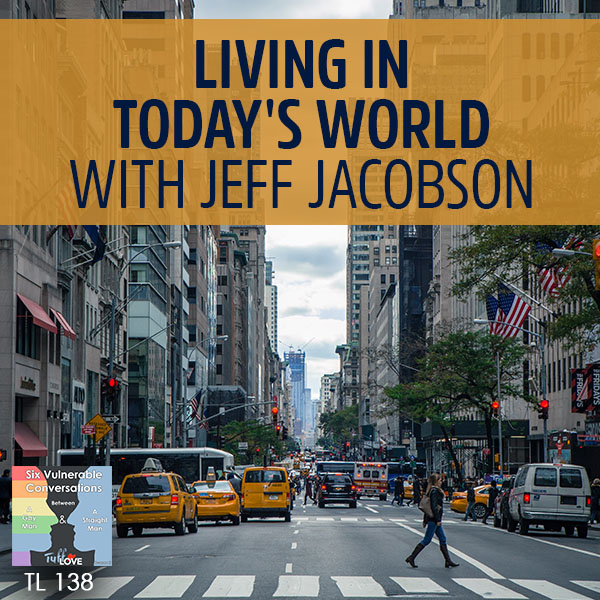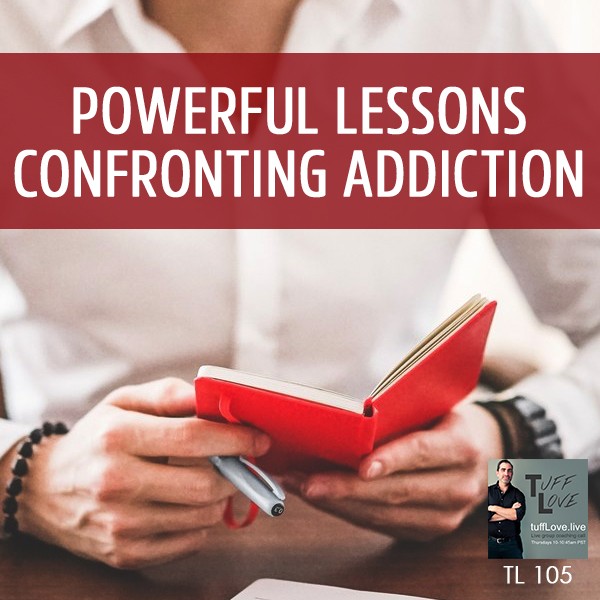
105: Powerful Lessons Confronting Addiction
Jan 23, 2018
Sometimes the seeds of addiction are buried so deep we aren’t even aware of them. Sometimes it takes a friend or an intervention to shine a light for us. But when we start to face this controlling force, we begin to take back our control and our lives.This negative connotation about addiction has never left our society fully, but there are programs and organizations that help in confronting addiction as an integral part of the recovery process. Al-anon and SLAA is just two of these organizations and programs that help addicts confront the shame of their situation. Willing addiction away is not possible, but handling this broken piece of yourself will make you run your life the way you want. This week’s show is going to be intense. It’s about this force in our lives that we don’t even want to confront. Come listen as I tell stories of what I’ve learned from my addictions.
—
I’m doing my show on a topic that you may have a little trouble listening to, the concept of addiction. We all have our viewpoints about addiction. Some people look at it and think it’s wrong or bad or ugly or evil. Other people are suffering from it. Addiction has been one of my greatest teachers, one of the most empowering experiences I’ve had in my life; challenging but one of the most powerful. In the show, I talk about my experience, what I learned, what happened and how you can face it. Then we bring Jonathan. He talks about his current addiction with smoking and then we sneakily go right underneath that smoking to find out what’s going on, the viewpoints underneath that are creating the addiction. I hope you enjoy it. If you’re so inclined, please visit Tuff Love on iTunes and Stitcher. Leave us a review, a little five-star and tell us what you think.
105: Powerful Lessons Confronting Addiction
I’m really excited to be here talking about the topic of addiction. Addiction in my history, in my world and what I know, what I think most people have it has an extremely negative connotation. If you’re addicted to something, if you’re addicted to someone or a substance, it often means that you’re weak. It often means there’s something wrong with you. It often means that there’s a problem. In my world and in my history, I started off that way. I started off really believing that there was something wrong with me once I discovered that I had addictive qualities.

Confronting Addiction: Codependent No More: How to Stop Controlling Others and Start Caring for Yourself
Then I read a book called Codependent No More by Melody Beattie. In that first chapter on the introduction, there was some paragraph that basically said that 98% of Western culture are codependent. I was like, “At least I’m in good company if I’m having these codependent thoughts.” There are some part of me that thinks that. On some level, I was terrified because I knew I lived in this codependent society. Another part of me thought, “I’m in good hands. I’m not alone. This isn’t my own thing where I have these addictive thoughts.” It gave me some keys.
The first thing I want to get across to you if you’re struggling with your addiction, if you’re thinking about some of the feelings you have around addiction, you’re not alone. In fact, you’re much more likely to have addictive qualities in today’s society than not. My impression is the way the world is going, we’re actually leading into more addictive aspects of our lives, more addictive ways of being with the advent of our favorite friend, the smart phone, has really affected how we interact with the world and becoming more addictive. I want to give you more of my story. I grew up in the ‘70s and ‘80s and early ‘90s in a place where the thought of being addicted was scary especially in the Just Say No era of Nancy Reagan and drugs, this imposed abstinence around sex and love and drugs. There was really a stark fear. If you even you saw a crack cocaine, you are going to get addicted. It was that immediate. Someone said to you the word crack cocaine and it’s possible you might have gotten addicted. That was the intensity of the world that I lived in.
Then there was sex addiction and love addiction and gambling addiction. You hear these horror stories about what it means to be addicted and the effect it has on people. What I had to come from in dealing with my own interaction with addiction and addictive personality traits, one of the propagations or what has addiction flow is our inability to really confront it and not see it. That was a big piece of my story. I was a nice guy. I didn’t drink. I didn’t do drugs until I was later. I smoked pot twice in my college years, didn’t like it. One, it didn’t really affect me and two, I got dumb and nervous and anxious. Why does everyone do a substance that makes you dumb, nervous and anxious? It didn’t make any sense to me. It didn’t really take. Alcohol was never a big part of my life. I avoided the whole frat scene when I was at USC, which is a big frat school. I avoided a lot of the addiction possibilities especially on alcohol when I was growing up, and really left graduate school with not a very strong relationship to external substances and not a lot of experience when it came to the possibility of what it meant to be an addict.
The thing that I remembered was I had one serious girlfriend. I had a bunch of very short flings in high school. I think the longest I ever dated with someone was two or three months in high school. I was not very popular in high school so I didn’t really have any extensive relationships. When I got to college, I dated someone who we got really thick into a relationship and we dated for about three plus years. During that time, we were really into sugar. We really like The Cheesecake Factory. We like frozen M&M’S. We worked hard in school but that wasn’t really it. We went to graduate school together in Philadelphia. As soon as we broke up, she started to drink. Then she started to drink a lot. Then she started to drink to excess. I didn’t ever see that when we were in a relationship because I wasn’t much of a drinker. My non-drinking created an environment where drinking wasn’t the popular thing to do. As soon as we broke up, I really got to see that she was a drinker. We spent one summer apart, and during that summer when she went back to Michigan, she drank a lot. The reason I’m saying this is that after the relationship, I had this insight that it was really interesting to see her mostly sober when we were dating and really a lot of drinking afterwards.
During graduate school, I met someone and have gotten involved in a relationship with her and she was a drinker. During the beginning of our relationship, there wasn’t a lot of drinking. There were moments when we were involved but then her drinking got more and more intense. I would go off at work 78 hours a week, she would stay home and drink a bottle of wine. There was one New Year’s Eve where she drank to the point where she had a blackout. Everything we talked about, all these things she said to me, some of them were really nasty, she didn’t remember the next morning. I didn’t understand it. It was alien to me that what she was doing was so intense. About five or six years into our relationship, a friend of mine said to her, “You might have an issue with drinking.” I don’t want to talk too much about her. I really want to talk about me. At the same day when my friend said to her, “You might have an issue with drinking,” she also said, “You might want to look at your relationship to her drinking.” This is a really important piece because I never confronted that aspect. I never thought that her drinking had anything to do to me.
The second piece is I actually flashed in that moment the college girlfriend who drank a lot after we broke up. I’m now in a relationship with someone who drinks a lot. My two primary relationships in my life have both been drinkers. My friend gave me this movie to watch. It’s called When a Man Loves a Woman, Meg Ryan and Andy Garcia, which is basically about the guy in a relationship with an alcoholic and how he had to go and find his own process about how he co-created the addiction. He went to an organization called Al-Anon and our friend said, “Why don’t you go to Al-Anon?” As soon as I sat down in that first meeting in Al-Anon I thought, “There’s something here.” I realized that there was something for me. I remember walking into that meeting with an excessive amount of shame, a sense of failure, a sense that, “I messed this up,” to the point where I was like, “There’s something here for me.”
Then I spent three years pretty heavily going through Al-Anon. For those who don’t know, Al-Anon is the organization for people in relationships with addicts. There was a lot of things inside of me, a lot of my attributes, my white knight, how I like to save people, how I like to carry things, how I viewed women as broken-winged birds, all these things, the excessive thrill I got from being the man, the solid, the rock in relationship with the addict. The more research I did, the more things I saw. One thing I saw was I was too much of a coward to drink, lose control, and be that guy at the life of the party. What I did is I hired my partner at the time to do that. She was the one to say outrageous things. She was the one to sing out loud. She was the one to be the life of the party. Me being next to her, I got to have the experience of being the life of the party through her. I used her relationship to drinking as a way to get some of my goals. That was a big thing.
The second big thing was I was at a meeting in San Francisco in this place called The Women’s Building, which was right in the center of The Mission. It was every noon and it was really hardcore lower-end addicts. Imagine the street people, people you really want to avoid looking at, who have drinking and alcohol and drug problems were there. There were a good 50 or 60 people. During the meeting, there was a guy who started talking and he started preaching. He was like, “Then God came down to me and said to me, ‘Michael, you must give up the drink. You must be the one to let go.’” He was this preacher up there and I was entranced by it. I was just like, “Right on, Michael.” I was feeling turned on and energized through it, and then I realized that I’m entertained by addicts. I like being in a relationship with them because I was entertained. That was a really humbling moment for me to really get how I was using this for my own devices.
Three years of Al-Anon doing the work, that relationship ended not really because of the drinking though it had a big piece of the puzzle. What happened is I really worked the program. I excised alcohol from my life. I was completely sober. All my friends were sober. The organization I was running was sober. I stopped going to meetings for a year or two and then really saw, after this really challenging moment, that there was still addiction inside of me. There was still something inside of me that was stirring because I was still in love with the girlfriend that I had broken up with years after breaking up with her. We worked together and I would see her with other guys or flirting and I would ache inside and I would feel the depth of my love. Then I realized that a previous girlfriend I’d broken up with, I had my own relationship with obsession with her. I went and I really got that, “Maybe there’s more for me to research.”
Then I went to what’s called Sex and Love Addicts Anonymous, SLAA. I had another three-year stint in SLAA dealing with this new version of my addiction. Alcoholism and dating addicts was very easy to see and spot. Sex and love addiction was much harder. The sex addiction never really applied to me, but the love addiction applied to me. I learned so much in that program. I learned about the concept of intrigue and how I loved the possibility of love and sex, even sometimes more than the actual having that love and sex. I dealt deep into the way I used intrigue to hook women and create possibilities and create rain checks and all of these things that happened. I learned that addiction morphed. It switched from being the savior of the broken-winged bird to the guy really dealing with an addiction in terms of his own fear of what’s happening. I really had to interact with that part of me.

Confronting Addiction: The more I shame and push it away, the more it propagates. You cannot will your addiction away.
Here I am now and it’s been a good three years since I stopped going to SLAA. I spent three or four years. I worked the steps inside of it. I want to talk to you about some general things about addiction that I learned. The first thing is the more I shame and push it away, the more it propagates. You cannot will your addiction away. I tried. I really worked my hardest to try not to be an addict. I remember driving, thinking about the girlfriend I was still in love with, and I was just praying. I was just pushing everything away and it didn’t work. What Twelve Steps recommends when you go through a twelve-step program, you actually dive in into the underlying causes and motivations of your addiction. What are the reasons you have addictive qualities?
For me, one of the things was that I felt disconnected from my father. My father always really put business and work, and so I didn’t have the connection to him. I also had a mother who loved me deeply and we had a very close-knit relationship a lot often where I replaced my father as the primary person in relationship with her. I played that replacement husband role. Then there was the fact that I was overweight as a kid and I did not get the attention I craved from girls when I was young which lowered my self-esteem, which required me to get external validation, which had me in my later years force myself to hook a woman. If I had a woman’s attention as an adult, I wouldn’t feel as dismissed and unattractive as I had as a kid. What the work on the addiction showed me was the underlying motivations on what caused the actions and the behaviors and the thought.
If you are struggling with addiction, if you even have some slight addictive thoughts, I highly, highly recommend that you don’t try to force yourself through it. When you’re an alcoholic and have a drinking problem and just cut off drinking but don’t do the underlying work, it’s called a cold turkey. It’s called white-knuckling it. You just force yourself through it. You may never drink another drop again in your life but that addiction, the underlying cause of it; you’re dealing with the smoke, not the fire. You have to dive into it and look at it. What happens is once you interact with the fire, then you’re free of the addiction.
Addiction morphs. This is a really important thing. A lot of people stop drinking and then they get into shopping or gambling or smoking or love addiction. A lot of times one addiction is the surface level to another addiction. A lot of people who came in Sex and Love Addicts Anonymous had dealt with their drinking or drug addiction first and then ended up in SLAA, where I had done multiple programs at the same time. Sometimes the drinking is a way to numb yourself out of the pain of a love addiction. It’s totally manageable and possible to go from point A to point B. I’m not really here to promote the twelve steps. I’m not here saying this is what you have to do. Please don’t take that. That’s one, against the twelve steps and two, not really my belief system. You can go to therapy. There are other ways to handle it. Some plant medicines have helped people with their addiction very quick. The point is if you work the steps, the promise of the program is that you can face and move past your addiction. That was my experience. Once I dove into those underlying aspects of who I was, then I felt so much free to really find out what was causing it.
Addiction morphs. Click To TweetIf you have an addictive thing, if there’s some part of you that wants to be freer, take the time and energy, dedicate yourself to working it. Work your program, work your therapy, work whatever you can. Please don’t non-confront it because addition runs amok. It’s the man behind the curtain or the woman behind the curtain who’s running the show without your knowledge. They’re pulling the levers. My own experience before I confronted my addiction was my addiction was running a lot of my toxic behavior. Now fourteen, fifteen years after first confronting my addiction, a man of 47, my life is infinitely better. I truly, truly believe that if I had not confronted my addiction in that time when my friend said, “You might want to look at this,” then my life would be a fraction of awesome it is now. If you don’t handle this piece of yourself, it will run you maybe a little bit but more often away in a lot because of it. Please confront it.
The last thing I’ll say is there are often biological reasons that we have addictive qualities. There is a lot of research that even some cultures, Native Americans as an example, have a higher propensity for addiction than Caucasian and certain cultures. If your grandparents or your great grandparents were addicts, those genes can actually propagate down or their behaviors. As much as we want to beat ourselves up for not being the pristine person we want to be, love that part of you. I’ve learned to love my addiction because it’s part of me. Once I confronted it, once I loved it, then it doesn’t have to run me. That is the main lesson I’d like to get across in this week’s rants.
Live Coaching
We’re going to bring our guest. Jonathan, how can I best be of service to you?
I’m working on quitting smoking right now. That’s my big addiction. Listening to this, I realized that the love addiction is probably the biggest thing. It’s probably the underlying thing. I was adopted at birth and I never really felt loved. I always feel this black hole. I’m explaining it to Anicha that I’m a little over two weeks now of not smoking and it doesn’t feel like it’s subsiding at all. It just feels like that black hole is just there and it’s not going away. I’ve gone two months without smoking. I was just waiting and waiting and wondering when is that ever going to go away? It just never went away.

Confronting Addiction: The love addiction is probably the biggest thing.
You see the bridge. You’re describing the lack of smoking, the desire to smoke as a black hole, but you use the same exact words for how you felt as a child around being loved. I want to start from the outside in with you. I’m not an addiction specialist in terms of coaching, so I highly recommend that you take this podcast as a springboard to research things and go deeper into it and find out what you want. I don’t want to mislead you in who I am and what my skill sets are. I’m just a man who’s done a lot of addiction work personally and coached a lot of people through it. I just want to make sure you get that. Did you smoke your entire life? When did you start smoking?
Fourteen.
Do you remember your motivation to start smoking?
It felt like a rebellious thing to do.
Who were you rebelling against?
When I think about it now, it seems like myself.
There’s the rebelling of who you are and your probably self-imposed anger towards yourself. Was there anyone else you felt you were rebelling against? Who you would be pissed off?
Maybe both moms and I didn’t even realize it.
Did you grow up with two moms?
No. There was the adoptive mom that I was raised with and then there was the one who gave me up at birth. I realize there’s a deep connection there but I just didn’t know how to put it into words. I went meeting her last year finally.
At fourteen, you started smoking. There was a rebellion for the adoptive mom and the mom. There was also a way that you were self-flagellating, self-hurting. Some people cut with razors.
I did that too.
You had a very strong self-destructive pattern. What’s your relationship with alcohol?
I was a heavy alcoholic at the age of sixteen. That was done before I was eighteen. I don’t really drink that much. I have a healthy relationship with alcohol right now.
When you were eighteen, how did you go from a heavy to a healthy? What was the process you did?
I took mushrooms and I felt like I was dying. That was it. My whole life started changing.
You had a wakeup call at eighteen when you did mushrooms that basically said, “It’s important for me to stop drinking.” What other changes did you make at that point?
I lost 40 pounds. I started doing martial arts. I started studying Chinese Buddhism and Taoism. I dropped out of school.
It was a wakeup call. Smoking was something you never quit?
I never quit it.
Do you remember what you told yourself why you got the realization, “I need to stop drinking. I need to start losing weight. I need to start exercising.” You knew smoking was toxic when you were young, right?
I did.
Do you know what rationalization you told yourself to keep smoking?
I didn’t have to try to quit drinking. The desire disappeared and the desire for other drugs disappeared. An inspiration to take care of myself just came in. Cigarettes were just neutral. They were in there like they didn’t affect anything. There was no thought process about it really.

Confronting Addiction: The desire disappeared and the desire for other drugs disappeared. An inspiration to take care of myself just came in.
You’re in your mid-30’s or late 40’s now?
I’m 41.
For the last 27 years, you have a relationship with cigarettes. What’s motivating you to quit now?
I’m losing my vision. I have really advanced glaucoma. Every day I wake up and I’m reminded that I don’t know how much longer I have to see.
I don’t know a lot about glaucoma. Is smoking a significant creator of that?
No one really knows but it feels like it to me. Smoking constricts the nerves and optic nerve is the main key in vision loss here. It seems like it.
It’s interesting you have your second wakeup call. You had the mushrooms that you thought you were going to die. Now, you have the glaucoma that has you think you might not be able to see. The second piece is currently, what do you think smoking provides for you?
I know that it does nothing on one hand. It just creates this loop of stress creation-stress relief but it also gives me something to do. It gives me something to go to when I’m bored. It’s just something that’s always there that I could put in my body that suppresses the emotions that I feel that come up every time I quit. I feel these emotions come up that I don’t really know how to deal with. I don’t even know how to identify with them. They’re just so strange. I keep thinking they just probably have something to do with not feeling socially nurtured as a baby being given up for adoption. Then the loss of my mother and never mourning that, it becomes too intense to deal with those emotions, so I just smoke.
I think you basically said everything that I think, which is good that you know that while smoking is such an easy target to try to relieve and maybe that’s why the month’s smoking or the two weeks’ smoking has been so challenging, it’s not that that you need to address. It really is the black hole that you lived with your entire life. How do you feel when I say confronting the black hole?
I wish I knew how to. It feels like it won’t go away. I feel like I’ve tried to chip at this for so much with so much energy.
That’s the masculine side of your mind, the fix-it, “How am I going to solve this math problem?” That wasn’t my question. I want to connect to the feminine side of your mind, the feeling side, which might be frankly under-developed or never had freedom to come out. How do you feel about the thought of confronting the black hole?
It’s scary.
That would be scary to me too, scary for everyone. I think this is why most people stay in their addiction. The fear of loss around the effect of the addiction, for some it’s cirrhosis of the liver or bankruptcy or losing partners. I don’t mean to scare you, but maybe a little bit. The fear of the loss of that is less than the fear of confronting the motivation, the black hole. I don’t want to get to the how yet because I have many resources to help you with that. I just want to get with you feeling the fear of confronting this part.
The fear of the loss of that is less than the fear of confronting the motivation, the black hole. Click To TweetI wrote this seven-step cycle for any goal. The first one really is confronting what it is that you want to confront or what you want to change. The second thing is really getting in agreement with it. Just know the masculine mind wants to go to the end results succeeding with a goal. Often we bypass the middle parts and then have us not achieve our goals. Your first two steps to get: One is just to confront, the second is to get in acceptance that this exists, “I’m interested and dedicated to changing it.” The last five or six steps will come later but that’s the main thing. That’s the life-changer right there, when you say to yourself, “I know this is true. I know this is part of me and I’m committed to the change.” It’s not going to be as easy as quitting cigarettes. I laugh because I had levity to that because that might seem really daunting. It’s actually confronting the black hole of your mom giving you up.
I just want to accept that this is something I’m going to do. I’m willing to do this. I’m willing to face it and confront the black hole.
That’s where you start, “I want to accept it.” At some point, this could become joyous because this black hole affects probably all aspects of your life. It probably stops you from receiving love from Anicha, from loving Anicha, from loving other family members. I don’t know your circumstances but this black hole affects everything. The potential for optimization and vastness of who you could become once you confront it is mind-boggling. You just have to sit with that tender thought like, “I’m scared. I’m nervous. I don’t know how this is going to go, what I’m going to face. This might be a lot of work.” Once you say, “I’m up for the journey,” to me, that’s where life really begins. You have support systems which you’re lucky.
I’m going to shift from this energetic feminine charging electric moment and I’m going to shift down to some more masculine recommendations from my point of view. I want you to leave with some things your mind can chew on. The first thing is that there are Twelve-Step programs for this. There are ways, Nicotine AnonymousI’m pretty sure exists. Sex and Love Addicts Anonymous just might be a powerful place for you to go. My favorite part of SLAA was two things. One was I felt accepted with who I was and I never felt accepted really anywhere else to the depth by these people. We’re all in the same boat. The second was the stories. Everyone basically shared what’s going on for them. To be honest, some are really annoying and whiny, but the majority of them are really just like, “I see that in you and I see that in me.” There was such inspiration. Being in the stories moved me from this terminal uniqueness that I felt into there’s other people suffering. I don’t want to push SLAA but I want to give you that as an option that just going to meetings might give you some sanity.
The second is therapy. There are addiction therapists out there. I had to deal with a lot of my pain and I went to a somatic therapist. A somatic therapist is a body-based therapist. I like to hit pillows with tennis rackets. I did something called EMDR, which is like going on mushrooms. You actually go into your subconscious. That was a big piece for me. Those are another thing you can look at. There are coaches out there that specialize in this. Please make sure that they specialize in this. I think it would be really powerful to have someone who’s been through it, to have a coach that really understands. If money is an issue, Twelve-Step is relatively free. There are also vast resources on the internet, many, many Facebook groups and many, many places you can go and just start to research this part of yourself, some pragmatic things to take.
I’m definitely feeling the SLAA. I think I felt called to that in the past and I’m going to give it a go.
If you’re shaming yourself for who you are then that’s half the battle. Click To TweetGo in and feel all your feelings and just make yourself right for who you are. Make yourself right for this experience. That’s the most important thing. If you’re shaming yourself for who you are then that’s half the battle. You have dealt a really hard hand. If you’re in a relationship with someone like Anicha, then there must be something powerfully awesome about you and there’s the next up level of who you could be and become, and that’s what I see.
Thank you. I appreciate this time and your energy.
My absolute pleasure and please keep in touch. Anicha knows how to find me. If I can help in your journey, please let me know.
Thank you so much.
Thank you, Jonathan, for your honesty and your vulnerability. I’m so glad that we come and share these things because you sharing of who you are is going to affect hundreds of thousands, tens of thousands of people who listen to this dealing with the same thing. It’s the terminal uniqueness that we think we’re the only one with this problem, and you’re not. This part of addiction that morphs and changes affects all of us. Please go forth and confront it so you can live the optimal life. Thank you so much for being part of the Tuff Love world. If you feel so inclined, please visit Tuff Love on iTunes and Stitcher. Give us a little rating, give us a little review. We’ll be back next week with another show. I’m very excited to announce that Tuff Love is going to this version of a conversation show called Six Vulnerable Conversations that we’ll start producing once a week. Go forth. Be free. Thank you so much for coming on the show. I love you. Take care.
Resources mentioned:
Podcast: Play in new window | Download




